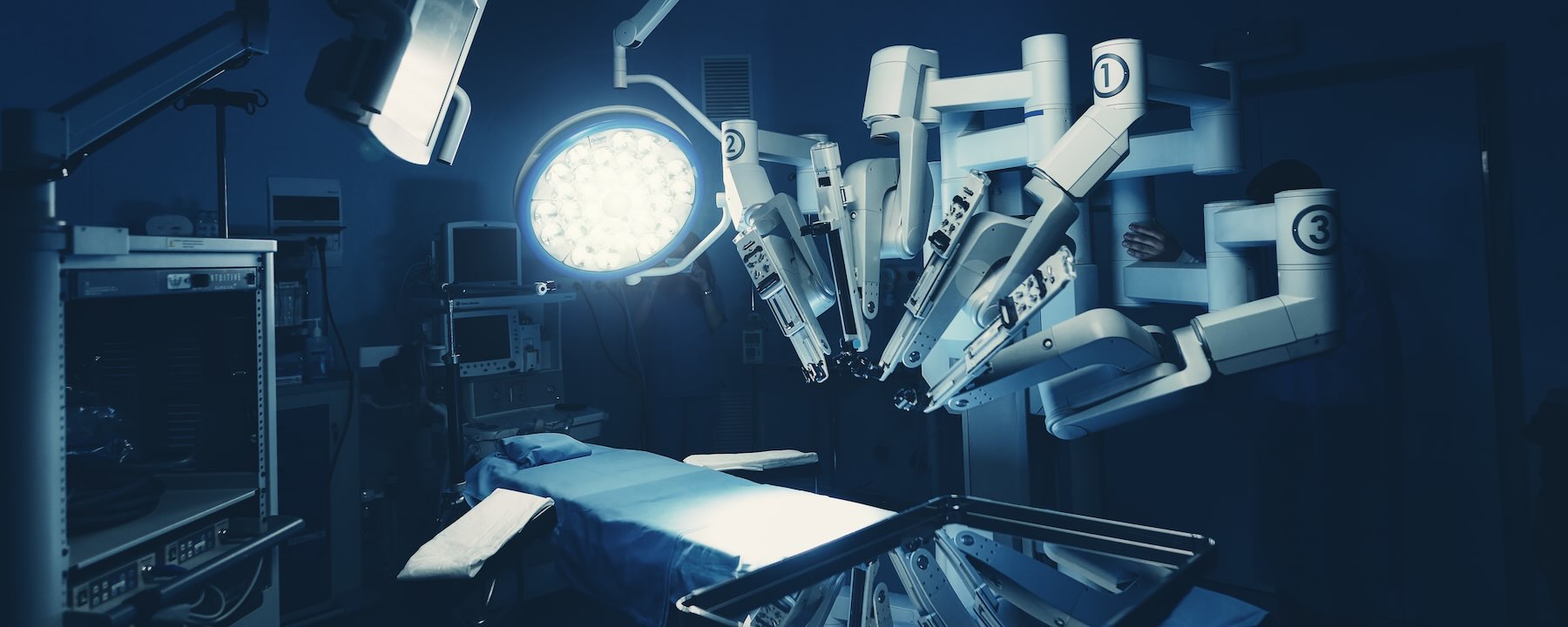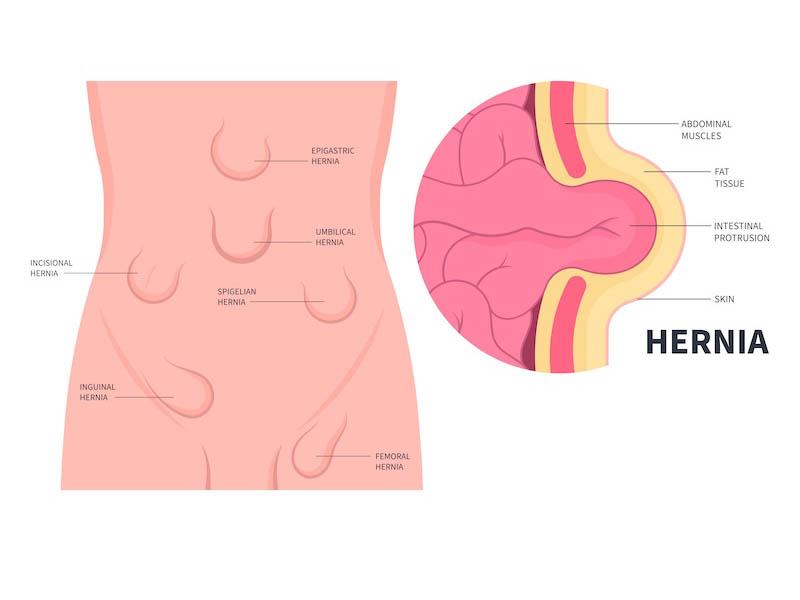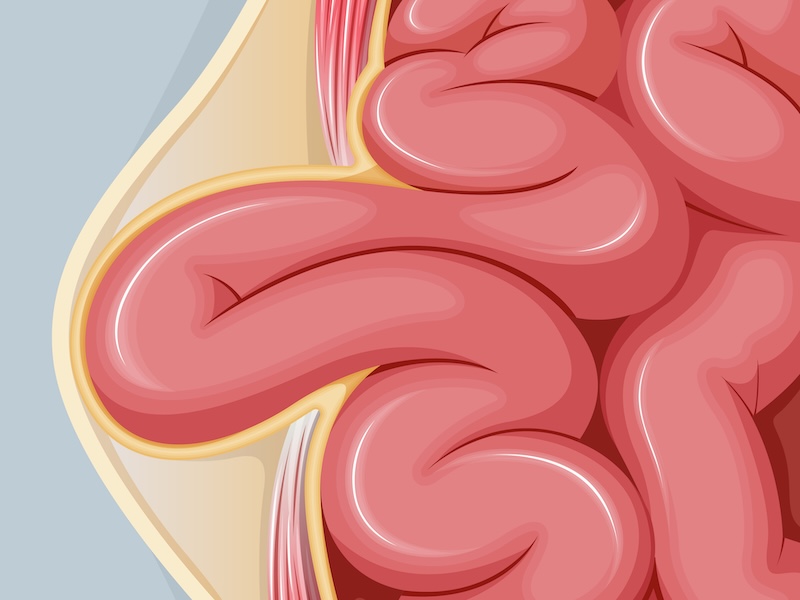
Hernia Surgery
Symptoms of a Hernia
Hernia Symptoms may include:
- bulge/lump in the abdomen or groin
- pain in the abdomen near the bulge
- pain may be worse with lifting, coughing, urinating, and strenuous activity
- bulge may change in size throughout the day
Call the office immediately if you have:
- excruciating pain at the site of the bulge
- nausea/vomiting
- bulge becomes red and tender to the touch

Types of Hernia
Belly button hernias are also known as umbilical hernias, and groin hernias are referred to as inguinal hernias. Umbilical and inguinal hernia repairs are commonly performed by our surgical team, as well as repairs of ventral hernias, epigastric hernias, and incisional hernias.

Inguinal Hernia
An inguinal hernia occurs when tissue, such as part of the intestine, protrudes through a weak spot in the abdominal muscles near the groin area. This type of hernia is more common in men and often appears as a noticeable bulge on one or both sides of the groin, especially when standing or straining. Inguinal hernias may cause discomfort, pain, or a burning sensation, particularly during physical activity. While small hernias may not require immediate treatment, larger or symptomatic hernias often need surgical repair to prevent complications like strangulation, where the blood supply to the trapped tissue is cut off. Prompt medical evaluation is important to determine the best course of action.
Ventral Hernia
A ventral hernia is a bulge of tissue through an opening or weakness in the muscles of the abdominal wall. It can occur anywhere along the midline of the abdomen and is often caused by factors like prior surgery (incisional hernia), obesity, pregnancy, or heavy lifting. Ventral hernias may appear as a visible lump that becomes more pronounced when standing, coughing, or straining. Symptoms can include pain, pressure, or a pulling sensation at the site of the hernia. While some small hernias may be monitored, many require surgical repair to prevent complications such as bowel obstruction or tissue strangulation. Treatment typically involves reinforcing the abdominal wall with stitches or mesh to restore strength and prevent recurrence.
Why Hernias Need to Be Taken Seriously
Intestine, organs, or other tissues from within the abdomen can squeeze through these weakened areas, causing a lump or bulge, as well as symptoms of pain and discomfort. The symptoms may first be noticed with increased activity or heavy lifting. Patients may notice that the hernia bulge increases and decreases in size throughout the day, depending on their level of activity. Some hernias may not even be visible while lying down, because the tissue goes back into the abdomen instead of bulging out through the hernia.
Sometimes, the tissue going through the hernia becomes trapped and cannot return to the abdomen; this is known as an incarcerated hernia and may sometimes require urgent surgery for repair.

Treatment for Hernias
Once a hernia develops, it will not heal on its own, and surgery may be appropriate to manage the symptoms. Hernia surgeries are one of the most common procedures performed in the country. Royal Oak Surgical Associates offers both open and minimally invasive (laparoscopic and robotic-assisted) options for hernia repair.
Most hernia repairs involve the use of mesh, a sheet of synthetic material that enhances the strength of the repair. Decades of research have demonstrated that hernias repaired with mesh are less likely to recur in the future.
Many hernia procedures are performed on an outpatient basis, allowing patients to go home on the day of surgery after a period of observation.




